Malaysia Budget 2026: Impact on Logistics & Trade
By Guanwutong / October 14, 2025
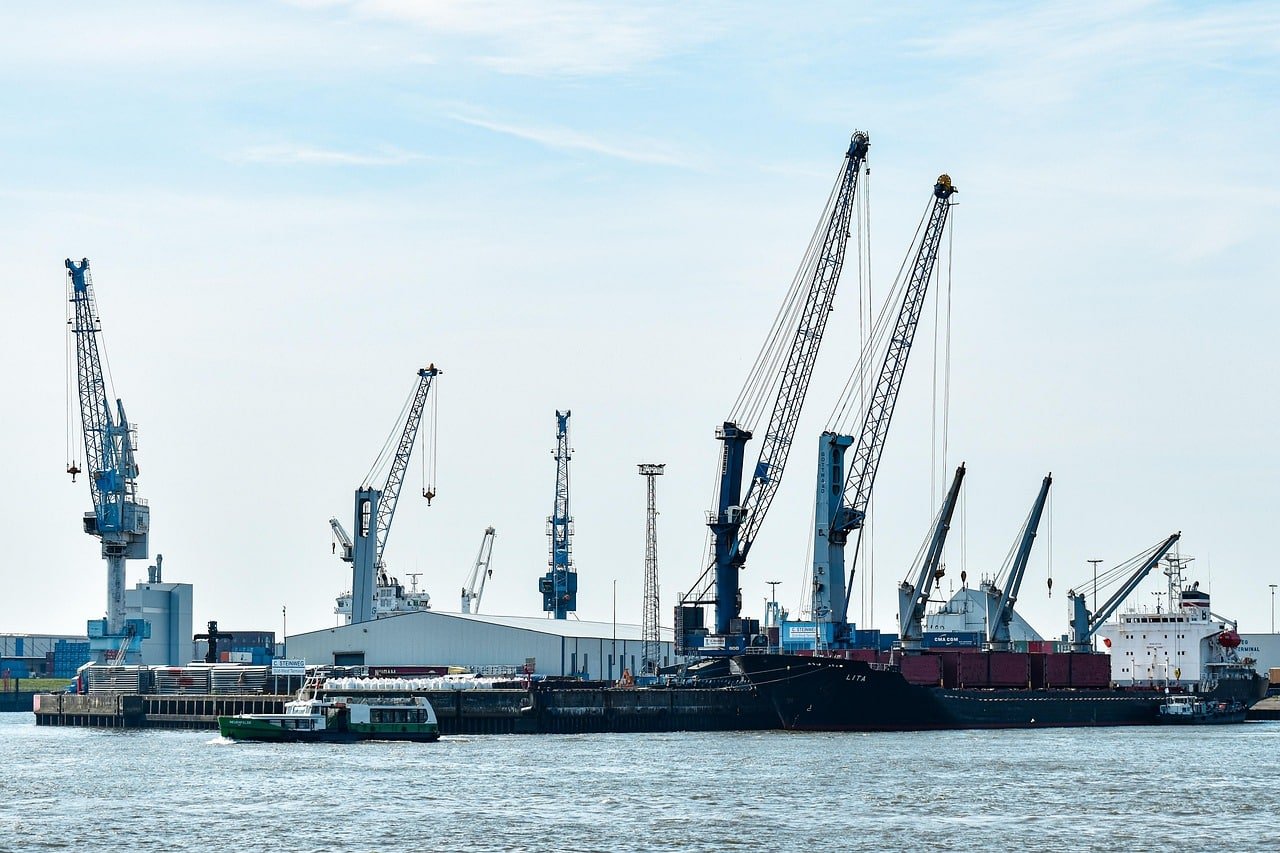
Malaysia’s 2026 National Budget, announced in October 2025, allocates RM470 billion to strengthen fiscal resilience, promote inclusive growth, and drive digital and green transformation aimed at improving the well-being of the rakyat (citizens).
Central to this plan is the Fourth MADANI theme, The Rakyat’s Budget, which underscores fiscal discipline, governance reforms, and equitable development, reflecting a strong commitment to responsible and inclusive policymaking.
In light of persistent global uncertainties and trade challenges, the budget highlights logistics as a strategic pillar for economic growth.
Significant investments focus on upgrading key infrastructure such as airports and highways, enhancing digital tax compliance, and advancing green logistics incentives—all designed to empower freight forwarders, SMEs, and the wider supply chain ecosystem.
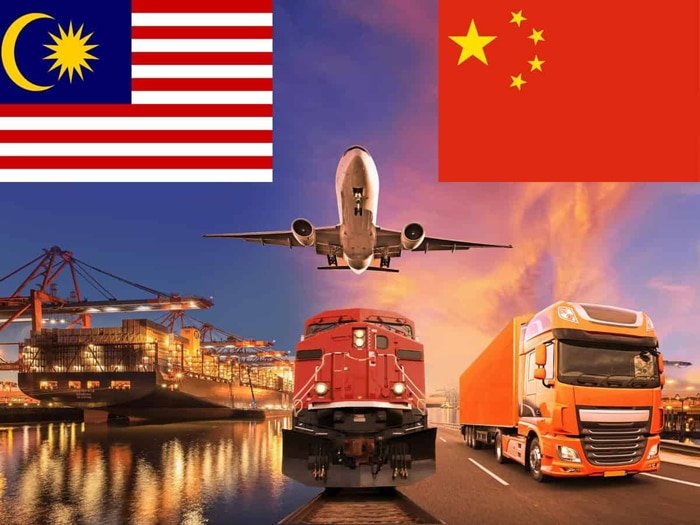
Malaysia’s deep and longstanding trade partnership with China further elevates the importance of a robust logistics sector to facilitate seamless cross-border commerce amid evolving global trade dynamics.
Serving as the foundation for the Thirteenth Malaysia Plan (2026–2030), this budget outlines nine core measures under Ekonomi MADANI’s three pillars: raising economic ceilings, improving living standards, and advancing governance reforms.
Together, these initiatives position Malaysia’s logistics and trade sectors to become smarter, more sustainable, and regionally integrated, unlocking new growth opportunities within ASEAN and beyond.
Key Logistics Policies with Industry Impact in Malaysia Budget 2026
1. Airport and Aviation Sector Upgrades
RM2.3 billion is allocated for upgrading airports in Penang, Kota Kinabalu, Tawau, and Miri, with project completion targeted for 2028.
These upgrades focus on enhancing air cargo capacity and passenger handling efficiency. Contracts to develop Short Take-Off and Landing Ports (STOLports) in Marudi and Redang will conclude by 2027, expanding regional accessibility.
Ongoing expansion of Sultan Azlan Shah Airport in Perak and Sultan Ismail Petra in Kota Bharu exemplify efforts to improve logistics infrastructure.
The Selangor Aero Park development, spanning 600 acres in Sepang, will establish a major regional cargo hub, boosting cross-border shipping from China to Malaysia and facilitating logistics flow critical for exporters and freight forwarders.
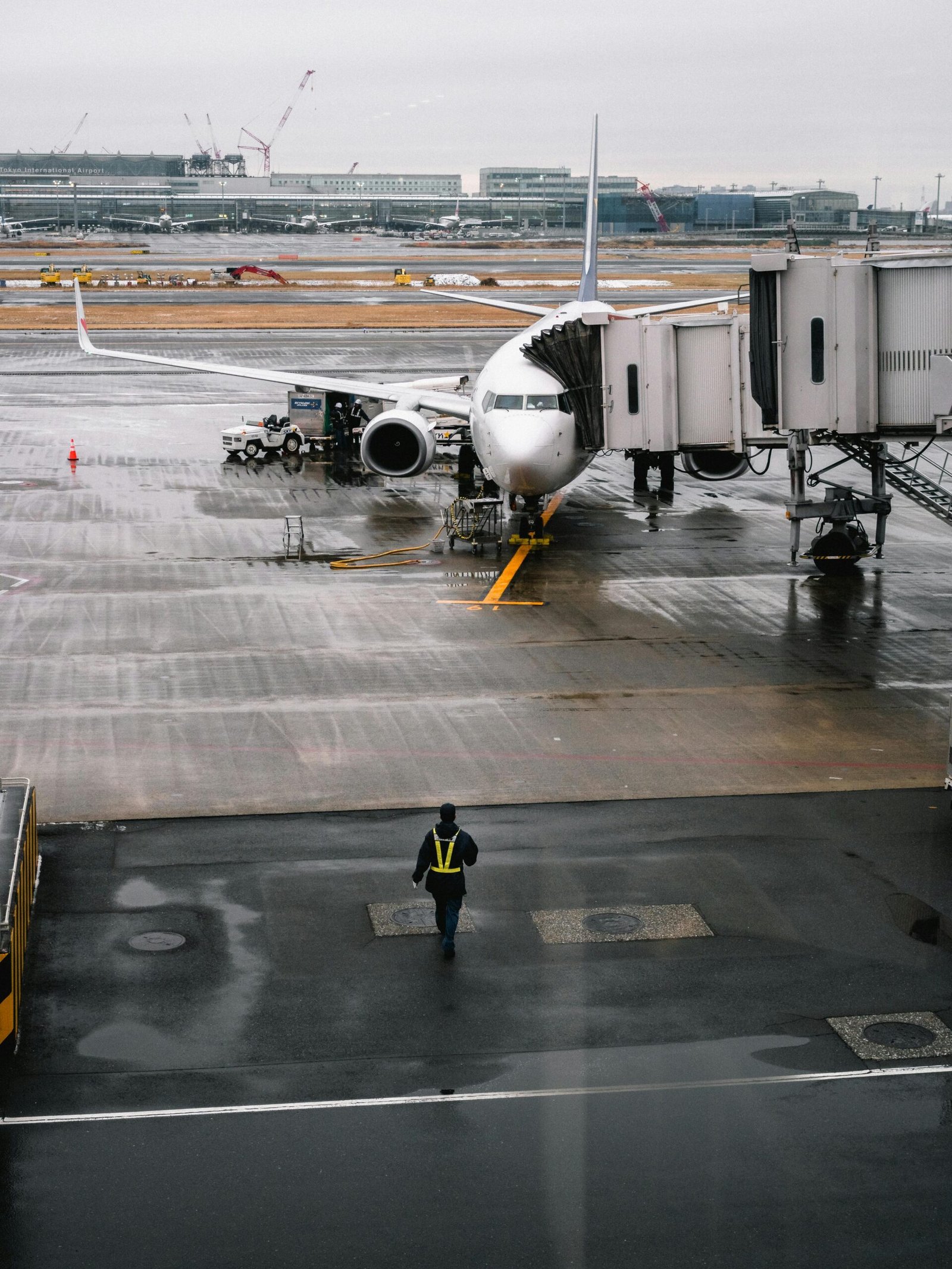
2. Road and Land Transport Investments
Significant investments exceeding RM48 billion will complete and expand the Pan Borneo Highway in Sabah and Sarawak alongside linked projects such as the Sarawak-Sabah Link Road and Trans Borneo Highway.
These are designed to dismantle transport bottlenecks and compress transit times across East Malaysia.
Integral to logistics digitalization is the MADANI Subsea Cable Link (SALAM), a 3,190-km undersea fiber-optic cable linking Peninsular Malaysia and East Malaysia.
This will enhance broadband access and enable real-time logistics data integration for supply chain efficiency.
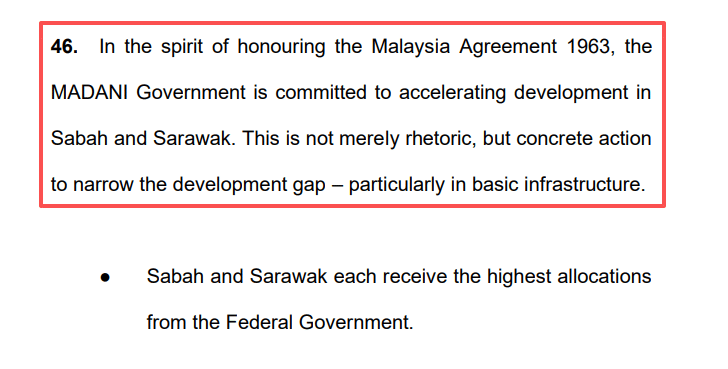
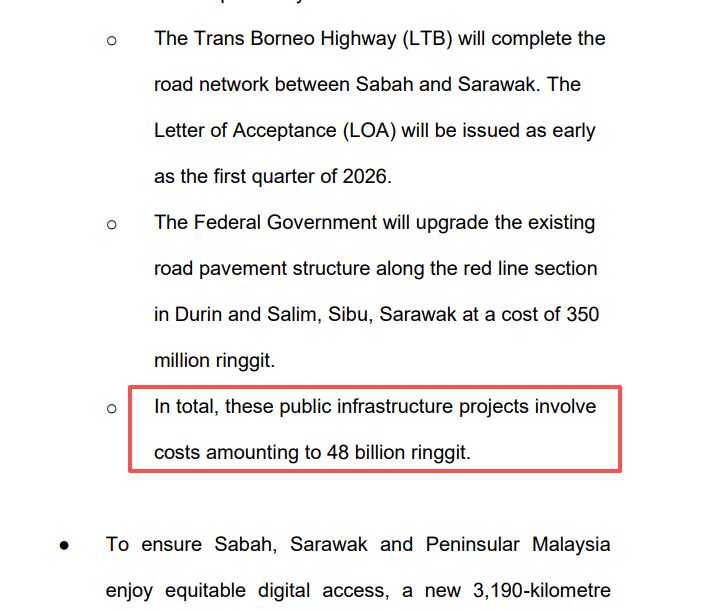
3. Digital Compliance and Taxation Modernisation
The government will enforce nationwide digital tax reforms in 2026 with the implementation of e-Invoicing and a self-assessment stamp duty system.
These initiatives will streamline tax filing and customs clearance, reducing administrative burdens especially for freight forwarders navigating complex cross-border shipping processes.
The Royal Malaysian Customs Department (RMCD) plans to introduce secure digital tax stamps designed to reduce forgery and revenue leakage at entry points.
Additionally, the exemption of Sales and Service Tax (SST) on ocean freight charges cushions international shippers and import-export SMEs against tariff pressures, reinforcing Malaysia’s trade friendliness.


4. Green Logistics and Environmental Initiatives
Malaysia continues to build momentum towards a low-carbon economy, with the Green Technology Financing Scheme (GTFS 5.0) extended through 2026.
This program offers over RM1 billion in financial guarantees to support green tech adoption across transport and logistics sectors.
The introduction of a carbon tax in 2026 targets heavy polluters, incentivizing freight operators and logistics firms to adopt carbon-efficient technologies.
Logistics firms using MyHIJAU-certified green technologies benefit from 100% Green Investment Tax Allowance, unlocking fiscal incentives to embrace sustainability as part of core operations.
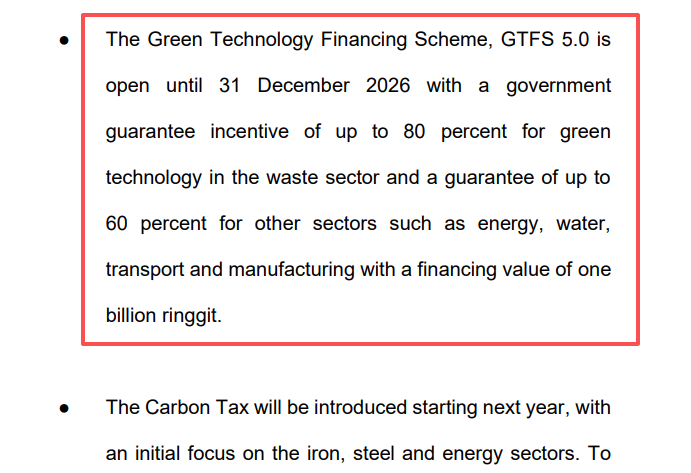
5. Export Promotion and Financing Support
To empower SMEs and exporters, RM60 million is allocated to MATRADE’s Market Development Grant helping Malaysian SMEs penetrate emerging markets in Africa, Latin America, and Central Asia.
The SJPP export financing guarantees up to 70% of loans for export-oriented firms, backed by a RM5 billion guarantee fund.
EXIM Bank’s RM500 million soft loan scheme further aids businesses facing global trade disruptions.
Collectively, these initiatives enable SMEs to seize expanding logistics opportunities and deepen integration into international supply chains.
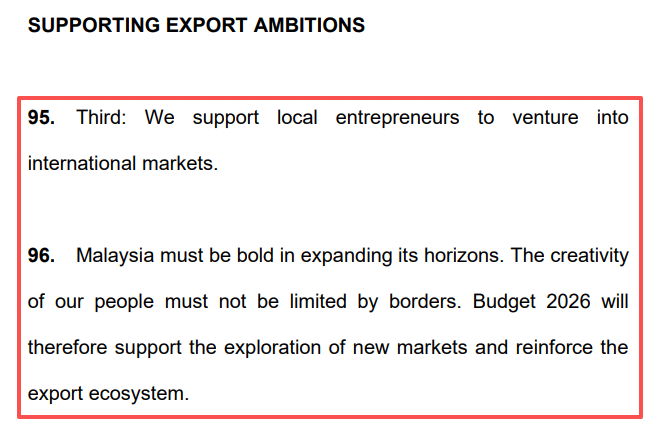
Read the Fourth MADANI Budget 2026 Speech
Strategic Implications for the Logistics Sector
1. Short-term Impacts
Malaysia’s Budget 2026 continues to prioritize upgrading airports, road networks, and logistics infrastructures, notably with RM2.3 billion targeting key airports and over RM48 billion allocated for the Pan Borneo Highway and related projects.
These investments will alleviate existing transport bottlenecks prevalent in East Malaysia and major urban centers, improving transit times and cargo throughput.
Freight forwarders will benefit from enhanced airport cargo handling capabilities and reduced highway congestion, directly translating to faster shipment cycles and improved service reliability.
However, the sector still faces operational cost pressures from rising fuel prices, higher minimum wages, and port tariff hikes such as the phased 30% increase at Port Klang. Addressing these challenges requires the government to balance infrastructure spending with policies that ease logistics operating costs.
2. Medium-term Developments
Digital transformation initiatives embedded in Budget 2026, especially e-Invoicing and secure digital tax stamps, promise to simplify customs clearance and enhance compliance transparency for logistics providers and SMEs.
These tools reduce paperwork and processing delays, potentially decreasing dwell times at ports, which remain longer than regional peers like Singapore and Vietnam.
The establishment of digital single windows for integrated customs and trade documentation could further accelerate cross-border shipping from China to Malaysia, enhancing the country’s competitiveness as a logistics hub.
At the same time, adopting industry-wide standards, like the Industry Code of Practice (ICOP) for transport safety, requires streamlined vehicle inspections and regulatory clarity to avoid implementation bottlenecks.
Collaboration between regulators and industry players will be vital to ensure smooth uptake of these reforms.
Further Reading: Code of Practice for Road Transport Activities, 2010
3. Long-term Outlook
Sustainability emerges as a core pillar of Malaysia’s logistics strategy with the rollout of carbon tax regulations and green technology financing.
These incentives encourage logistics companies to invest in cleaner fleets, eco-friendly packaging, and energy-efficient warehousing.
The MyHIJAU certification with associated tax allowances serves as a strong motivation, positioning sustainability as a competitive differentiator in regional and international markets.

Moreover, enhanced export financing mechanisms like SJPP’s RM5 billion guarantee fund dan EXIM Bank’s soft loan offerings strengthen SMEs’ ability to scale and integrate into global supply chains.
This is critical for maintaining resilience amid geopolitical uncertainties and ongoing global trade disruptions.
Structural Challenges and Workforce Development
Despite these positive policy directions, challenges such as regional disparities in logistics infrastructure, especially in Sabah and Sarawak with insufficient cold-chain facilities, and fragmented regulatory environments could inhibit growth.
Human capital development also remains crucial; a digitally skilled workforce equipped with logistics technology and data analytics capabilities will be essential to support the sector’s modernization.
Transport safety concerns caused by congested roads and heavy freight traffic point towards the need for diversified transport modes.
Experts advocate increased investment in rail freight infrastructure, including rail bypass lines to ports, to alleviate road congestion, reduce accident rates, and improve overall freight efficiency.
How GWT Shipping Aligns with Malaysia Budget 2026 Vision
With 20+ years of experience connecting China and Southeast Asia, GWT Shipping provides integrated logistics solutions that align with Malaysia’s 2026 priorities.
Our network spans comprehensive ocean, air, rail, and express courier services with bonded warehouses in strategic locations including Shenzhen, Dongguan, and Fuzhou.
1. Tailored Industry Solutions
- Certified handling of electronics and temperature-sensitive cargo.
- Medical logistics operations compliant with ISO 13485 standards.
- Reinforced packaging and insurance for high-value automotive freight.
- Specialized cold chain and consolidated regulatory inspections for fresh produce and perishables.
2. End-to-End Logistics Services
We offer customized route planning balancing cost, compliance, and speed, plus expert packing, 24/7 customs brokerage, bonded storage, and door-to-door delivery with full digitized proof of delivery, ensuring supply chain resilience and regulatory adherence.
3. Commitment to Sustainability
GWT Shipping optimizes shipment routes and consolidates cargo loads to minimize fuel consumption and emissions while offering eco-friendly packaging solutions compatible with Malaysia’s carbon tax law and green investment incentives.
4. Trusted Partner for Exporters and SMEs
Leveraging transparent communication and technology integration, GWT Shipping provides hassle-free cross-border shipping experiences from China to Malaysia, maximizing operational efficiency and compliance.
Kesimpulan
Budget 2026 firmly positions the logistics sector as a vital engine for Malaysia’s economic growth, emphasizing critical areas such as infrastructure development, digital reform, green transitions, and targeted export support.
These strategic investments and policies create a stable foundation for freight forwarders, logistics companies, and SMEs to navigate and thrive amid an increasingly complex global trade environment.
For businesses engaged in cross-border logistics between China and Malaysia, as well as wider ASEAN markets, this budget signals enhanced efficiency, reduced costs, and greater sustainability. It reflects Malaysia’s commitment to fostering a conducive environment where regional trade flows can accelerate and supply chains become more resilient.
At GWT Shipping, we are dedicated to supporting this vision by delivering compliant, sustainable, and innovative logistics solutions tailored to the needs of businesses navigating this dynamic landscape.
We understand that success comes from partnership, adaptability, and a shared commitment to progress, values that resonate strongly with the spirit of the Fourth MADANI Budget.
Together, we look forward to turning these new opportunities into tangible results for our customers, strengthening connections between China, Malaysia, and beyond. With thoughtful planning and collaborative effort, the future of logistics in the region promises to be both prosperous and sustainable.
FAQ: Malaysia Budget 2026 and GWT Shipping Insights
How will Malaysia’s introduction of e-Invoicing affect freight forwarders and SMEs?
The 2026 Budget implements e-Invoicing and digital tax stamps to simplify tax reporting and customs clearance.
GWT Shipping uses its international logistics expertise to guide clients on adapting to these digital processes, helping ensure smooth and compliant cross-border operations with reduced administrative workload.
What impact will the 2026 carbon tax have on logistics companies in Malaysia?
The carbon tax encourages adoption of greener logistics practices. GWT Shipping works with clients to optimize shipment routes, consolidate cargo, and implement sustainable logistics strategies, supporting alignment with sustainability goals while enhancing operational efficiency.
How can logistics firms benefit from Malaysia’s green logistics incentives?
Incentives such as financing schemes and tax allowances support investment in sustainable technologies.
GWT Shipping assists clients in understanding and leveraging these opportunities by incorporating eco-friendly transportation planning and packaging solutions into their logistics operations.
Are there grants available to help SMEs adopt digital logistics tools?
Yes, grants support SMEs in implementing warehouse management systems, tracking tools, and digital platforms.
GWT Shipping offers tailored solutions that enhance supply chain transparency and delivery reliability, enabling SMEs to stay competitive in an evolving market.
How does Malaysia’s budget address port congestion and infrastructure challenges, and how does GWT Shipping help navigate these?
The budget allocates significant investment in highways, airports, and digital infrastructure to improve connectivity and reduce bottlenecks.
GWT Shipping’s multimodal transport network and strategically located warehouses empower clients to capitalize on these infrastructure enhancements, delivering flexible and efficient logistics solutions across Malaysia, including East Malaysia.
